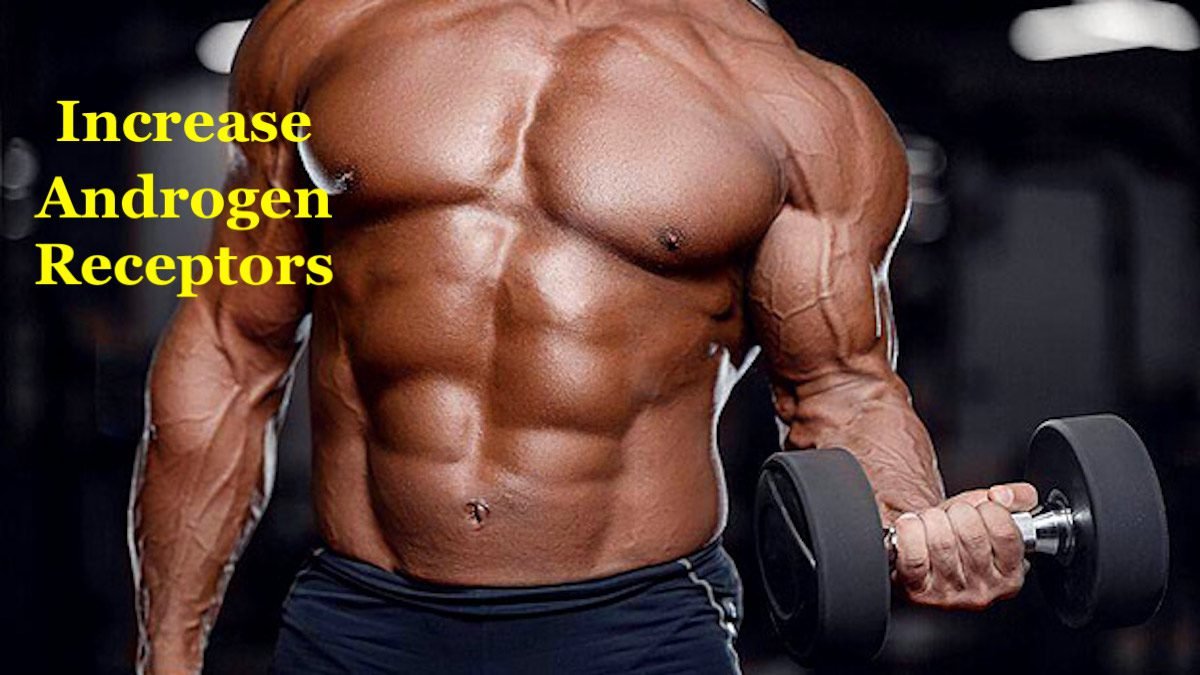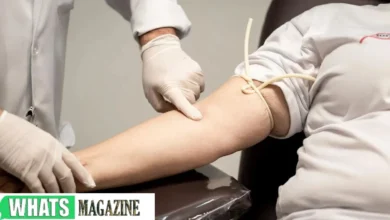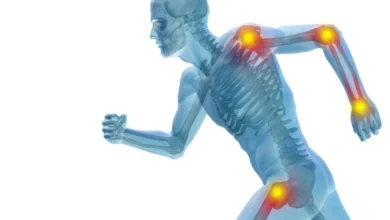By the time they’re 45 years old, approximately 39 percent of men have low levels of androgenic hormones (including testosterone).
So, if you haven’t already received the news, it’s likely that you’re dealing with low testosterone. And you may not even recognize the symptoms of the condition.
The good news is that you can improve this issue by identifying the problem and increasing androgen receptor density. If you’re not sure how to start, keep reading. We will cover everything you need to know about increased androgen receptors so that you can take your health back.
In this article
Androgens and Androgen Receptors: The Basics
Before we dive into what you can do to increase androgen receptors, it’s vital that you have a general understanding of what they are.
So, let’s cover the basics about androgens, androgens receptors, and symptoms of low androgens. This will give you a great starting point for reinstating your hormonal balance.
What Are Androgens?
Androgens are a group of hormones. This group contains predominantly male hormones like testosterone. Although it’s important to point out that females have androgens, they have them in lower doses than males.
In fact, all bodies produce and require some level of testosterone to function correctly. They’re important for reproductive development in both males and females.
Our bodies produce androgens in the adrenal gland and ovaries by using cholesterol. Specific androgens have other means of creation as well. For example, our muscle and fat tissue can create testosterone.
Androgens play a role in our sexual health, metabolism, insulin sensitivity, and body composition. In women, androgens also affect bone density and cardiovascular health. Some researchers also believe that androgens could also play a role in brain function and mood.
What Are Androgen Receptors?
To facilitate communication between cells in your body, some cells have receptors. In this particular instance, we will be talking about androgen receptors. These help your body keep track of and regulate hormone receptors.
These receptors are like the lock in a lock-and-key system. That makes the hormones (androgens) the keys.
To properly communicate, each hormone must find the receptor that suits it.
What Are the Symptoms of Low Androgens?
Low androgen (hypoandrogenism) symptoms may be easy for your doctor to find in men. However, they’re not as evident in women.
Common symptoms include changes in sex drive and mood. But, the research isn’t absolute. Unfortunately, research has mainly focused on hyperandrogenism (high androgens).
There are also a few conditions associated with hyperandrogenism:
- Primary ovarian insufficiency (also known as early menopause)
- Surgically-induced menopause
- Hypopituitarism (underactive pituitary gland)
- Chemotherapy
- Adrenal insufficiency
- Human immunodeficiency virus (HIV)
- Birth control containing estrogen
- Any hormone therapy containing estrogen
If you fall into one or multiple categories, you should ask your doctor to test you for low androgen levels. They may also want to check your level of sex hormone-binding globulin (SHBG).
Many of these conditions lead to low androgen levels because they increase the amount of sex hormone-binding globin. This decreases the amount of bioavailable testosterone in the body because it’s all binding to the SHBG.
So, your bloodwork may show you have an average amount of testosterone. But, the amount of testosterone that is actually available for your body to use may be below. Thus, this causes hyperandrogenism.
Why Should I Increase My Androgen Receptors?
If you have hyperandrogenism (low androgen levels), you should work to increase the androgen receptors in your body. This can help you achieve hormone equilibrium again. And it will make you feel better than ever.
Building your androgen levels will build muscle, burn body fat, and reduce the risks of multiple chronic illnesses. You may also start to notice that you have more energy and a more incredible sex drive.
But, the real reason comes down to your health. You must increase your androgen receptors to properly care for your body. Individuals with low androgens should work on balancing their hormones so that their bodies aren’t negatively affected over time.
So, even if you aren’t interested in the symptom changes, it’s best to do this for your overall health.
How to Increase Androgen Receptors in Your Body
You have to be careful when it comes to increasing your androgen receptors. We highly recommend speaking to your physician about changes you plan on making.
Otherwise, these changes are relatively harmless. However, you should be sure to practice self-reflection to evaluate whether these changes are positively or negatively affecting you.
Let’s dive in.
1. Lift Weights
Exercises that involve heavy resistance increase your serum total testosterone. These exercises also help regulate AR (androgen receptor) mRNA and protein expression.
And it all happens relatively quickly. Your blood chemistry may change after just three exercise sessions using these methods.
However, you shouldn’t push yourself too hard. If you perform these exercises too often, you could place too much metabolic stress on your body. This may lead to overtraining, which can cause an increase in cortisol and reduced androgen receptors.
So, you’d be doing the opposite of what you’re trying to do. In turn, you’d be worsening your symptoms. And you’d likely be harming your body.
So, we recommend that you start off slowly and ease your way into this new practice. Listen to your body and take breaks when you need them.
Increasing the number of androgens in your bloodstream isn’t going to happen in a few minutes or hours. So, you should be patient with the process and allow your body to react to the change.
When in doubt, you should consult your doctor about your activity level. You should also consider hiring a personal trainer who can help you navigate lifting weights for the first time.
2. Increase Vitamin D
Vitamin D (calciferol) is an essential vitamin that everyone needs. It helps with many different bodily functions, including the following:
- Promotes healthy bones and teeth
- Supports the immune and nervous systems
- Regulates insulin levels and supports diabetes management
- Supports lung function and cardiovascular health
- Influences gene expression in cancer-associated genes
In essence, vitamin D helps you care for your body as a whole. It’s vital that you get the amount of vitamin D you need so that you don’t feel the energy loss associated with vitamin D deficiency.
You should talk to your physician if you feel vitamin D may be the problem. He/She can help you determine whether you have a vitamin D deficiency. Then, he/she can help you find the right amount if necessary.
Since low vitamin D links directly to low androgens in the bloodstream, it’s essential to ensure you’re getting the amount you need.
3. Increase Protein Intake
By ingesting more protein, you’ll be helping your body make more available androgen receptors.
We highly recommend eating directly after you’re done working out. During this time, the muscle protein synthesis in your body is at its highest. It’s also the time when your body can use all the protein you ingest.
Protein also helps decrease sex hormone-binding globulin (SHBG). In turn, you’ll be increasing the amount of testosterone and IGF-1. This is an anabolic growth factor, which means that it helps stimulate the body’s metabolism.
The meal also helps to control your insulin response. In particular, this response is anti-catabolic. Thus, it decreases the breakdown of muscle in your body.
It also increases the amount of free testosterone in your body. In turn, you’re increasing muscle protein synthesis.
Plus, your body may free previously blocked androgen receptors.
All in all, eating a meal after your workout helps you regulate your body in multiple different ways. Your muscles need proper nutrients to grow big and strong. So, this may be a small change, but it amounts to significant results.
4. Supplement with L-Carnitine
Carnitine naturally occurs in foods like meat and fish. Carnitine is a compound that transports fats into the mitochondria of your cells. After this, your mitochondria can use the fat to create energy for your body.
In turn, the androgen receptor activity within these cells increases.
You should consider taking one to two grams of L-Carnitine L-Tartrate daily to increase androgen receptors within your body.
If you don’t eat meat, you should talk to your doctor about getting the right amount of carnitine for your body. Some experts consider this one of the most valuable compounds that non-meat eaters miss out on.
5. Sleep More
That’s right! Sleep can contribute to androgen receptor production in the body.
Too often, we aren’t getting enough sleep. This can cause blocked androgen receptors and unbalanced hormones.
Fasting for a short period can increase your body’s androgen sensitivity. This causes increased testosterone.
The perfect period of time to fast is while you’re sleeping. It may not seem like it, but your body is soaking in the benefits of intermittent fasting while sleeping.
During this time, your body detoxifies itself. By removing these extraneous things, your body can focus more on helpful things, like androgens.
So, we recommend getting seven to nine hours of sleep a night. We know that this may seem impossible to some people, but it’s essential.
Besides androgen creation, so many beneficial things happen while you’re sleeping. So, taking care of your body is important by giving it the time it needs to recover from the day.
6. Reduce Soy Intake
Soy has many isoflavones. These compounds have estrogen-like effects on the body. In turn, they decrease testosterone and increase estrogen in the bloodstream.
At the same time, soy products also decrease the number of androgen receptors in the body.
Soy shows up in plenty of food products these days. Here are some examples:
- Chocolate bars
- Protein powders
- Protein bars
- Ground meat
- Burgers
- Processed meats
- Miso
- Tofu
- Peanut Butter
- Tempeh
- Soy sauce
- Natto
- Baked goods
- Cereals
- Canned foods
- Sauces
Unfortunately, manufacturing companies don’t list soy on the ingredients list, even if the food has soy.
Some companies also use soy as a thickener, which can appear as different names on the ingredients list. You may see glycine max, hydrolyzed vegetable protein (HVP), and mono-diglyceride. All of these are kinds of soy that can still cause estrogen-like effects.
Small amounts of natural, organic, GMO-free soy won’t completely ruin the hormone balance within your body. It’s not particularly harmful in foods like natto, miso, and tempeh.
However, you’re worse off with mass-produced foods. These are worse for you and cause more harmful effects.
7. SARMs
Selective Androgen Receptor Modulators (SARMs) are therapeutic compounds that can help increase androgen receptors inside the body. They do this by binding synthetic ligands to androgen receptors in the body.
Then, similarly to an androgenic steroid, it can help increase the number of androgens in your system. This can help correct any deficiency that you may have.
If you’re interested, you should look into how you can buy SARMs. These may help you increase the number of available androgen receptors in your body. Thus, you’ll get higher levels of androgens (including testosterone) in your bloodstream.
When in doubt, talk to your physician. He/She can help you find the proper regimen for you.
Increase Your Androgen Receptor Density Today
That’s it! You’re all set to start with our overview of androgen receptors and how to increase their prevalence in your body.
By practicing these changes and evaluating your body’s response, you should be able to increase androgen receptors with ease. Remember to contact your physician if you have any personal questions regarding these diet shifts and lifestyle changes.
To learn more about important health information like this, visit our blog. We’re constantly posting new and exciting things over there.
Who knows? You may learn more fascinating ways to improve your health.











